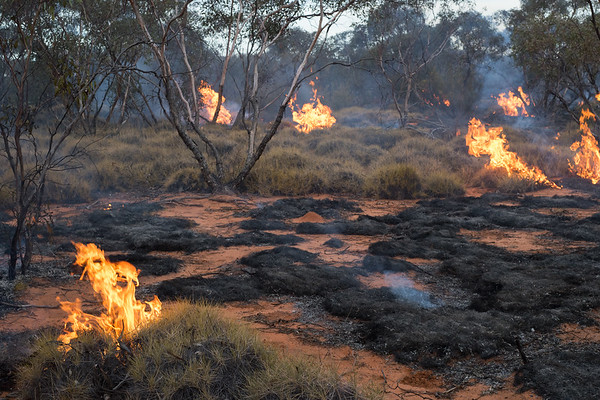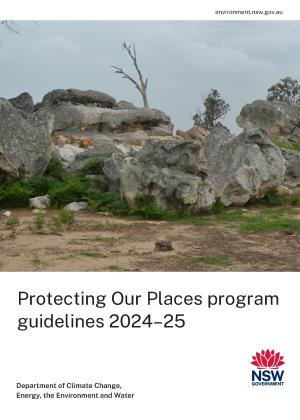This program is open to applications for the 2024 round, closing at 5 pm on Tuesday 2 April 2024.
Purpose
This program empowers and provides opportunities for Aboriginal organisations to undertake projects that:
- contribute to ongoing sustainable management of significant Aboriginal cultural landscapes in New South Wales
- contribute to healthier environments and communities
- develop project management capabilities of Aboriginal groups
- encourage new collaborations and positive relationships with other organisations, government and stakeholders.
Project stages
Projects under the Protecting Our Places program are implemented over 2 stages:
- Stage 1 – planning from 6 to 12 months in duration
- Stage 2 – implementation from 18 to 24 months in duration.
Note: Projects do not automatically progress from Stage 1 to Stage 2. After Stage 1, projects are assessed against criteria, and successful projects are invited to participate in Stage 2.
See the Protecting Our Places program guidelines 2024–25 for more information.
Funding available
Grants of up to $80,000 are available over the 2 stages:
- Stage 1 Planning – up to $12,000 for project planning.
- Stage 2 Implementation – up to $67,000 to complete the project on-ground works, plus $1,000 quarantined for the mandatory financial audit, totalling $68,000.
Note: A funding cap of up to 30% must be allocated towards the employment of a project manager to manage and coordinate all project activities across both stages of the project.
See the Protecting Our Places program guidelines 2024–25 for more information.
For each grant recipient, we will coordinate and deliver face-to-face workshops for 2 key staff/participants in your project at the beginning of Stage 1. In addition, proposed grantees are strongly encouraged to invite an Elder to participate in these workshops to act as a community representative, knowledge holder and relevant cultural authority.
These workshops will provide you with:
- support and guidance to develop a plan specific to your project
- mentoring, advice, and networking opportunities
- an understanding of the Trust's reporting requirements.
Matching funding
You do not have to contribute matching funds, however, your application may be more competitive if you can match the funding you seek from the Environmental Trust. You can make:
- financial contributions – money from your organisation or project partners
- in-kind contributions – donations of goods, services, staff time, expertise, or use of facilities or equipment.
Types of activities funded
Protecting Our Places program guidelines 2024–25 explains what we will fund.
Different activities are eligible in each stage – planning and implementation. No on-ground works will be funded during the Stage 1 Planning stage.
Support available
The Trust encourages all eligible Aboriginal organisations to apply regardless of your project management experience, as support to develop and deliver a project plan is available. In the planning stage of the project, we can help you:
- identify your project's key stakeholders
- determine what permits, licences and approvals you may need
- prepare a Project Implementation Plan (which includes how to monitor and evaluate your project).
We provide:
- project management and training specific to your project
- support to help you develop your Project Implementation Plan
- access to online tools, resources, and support for continued help over 12 months
- periodic project management support and advice over the life of the project.
At any time during the project, you can ask us for advice about managing the project.



